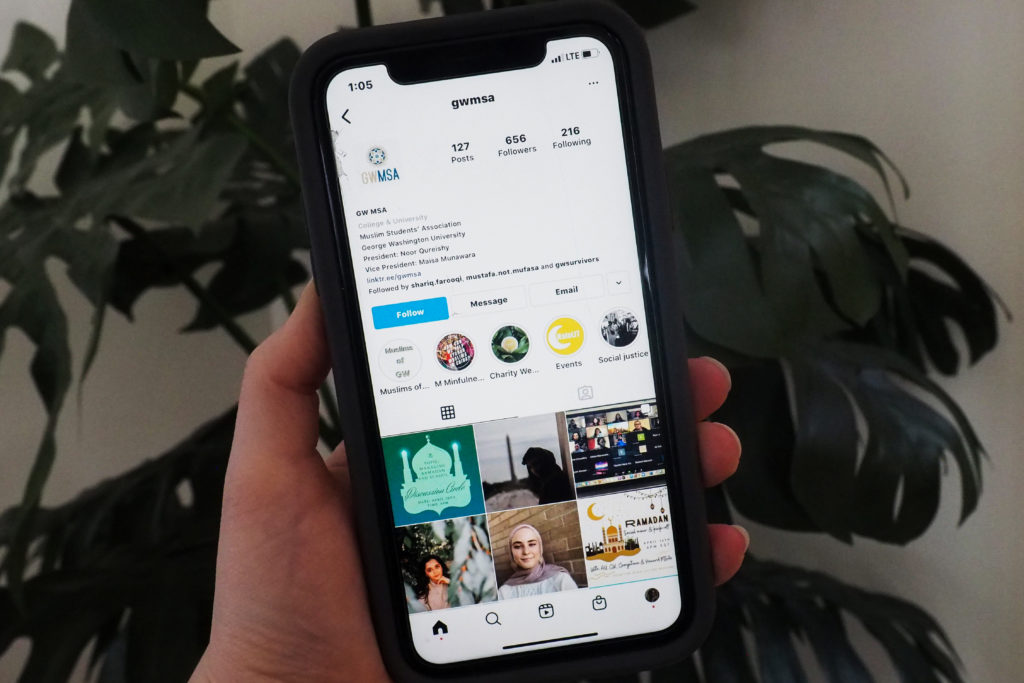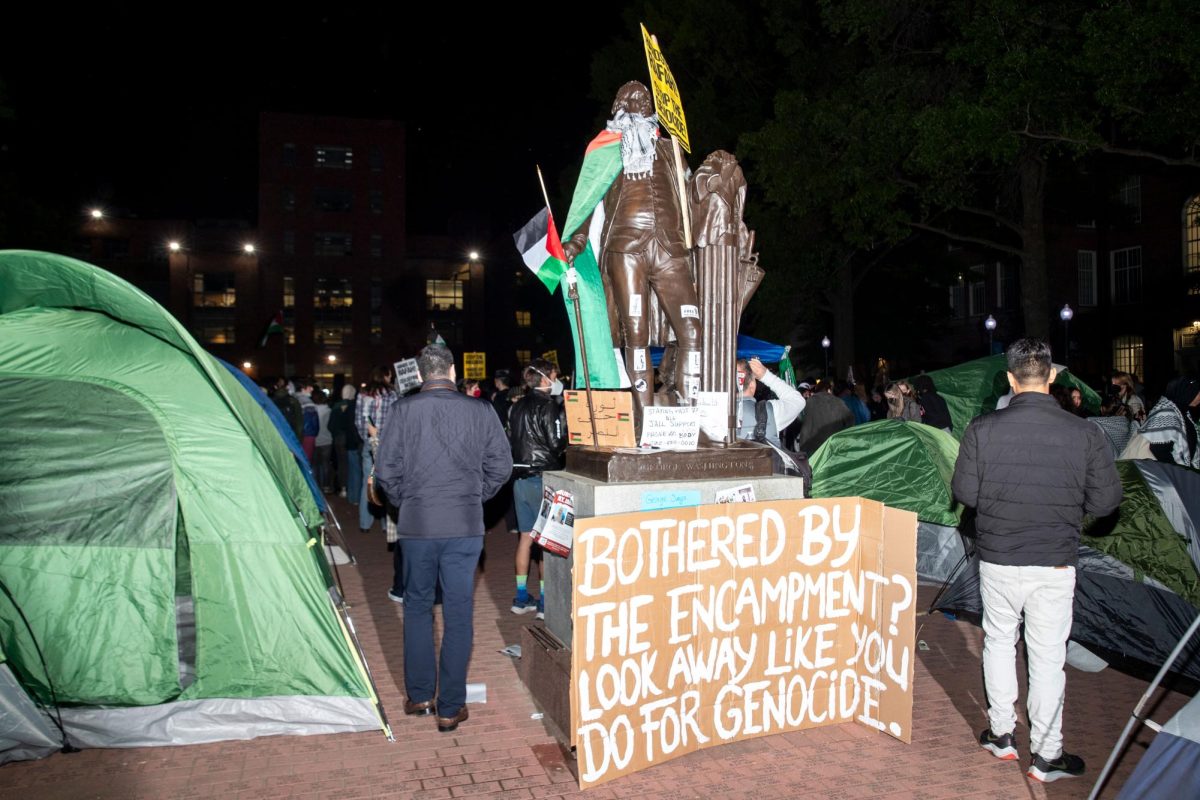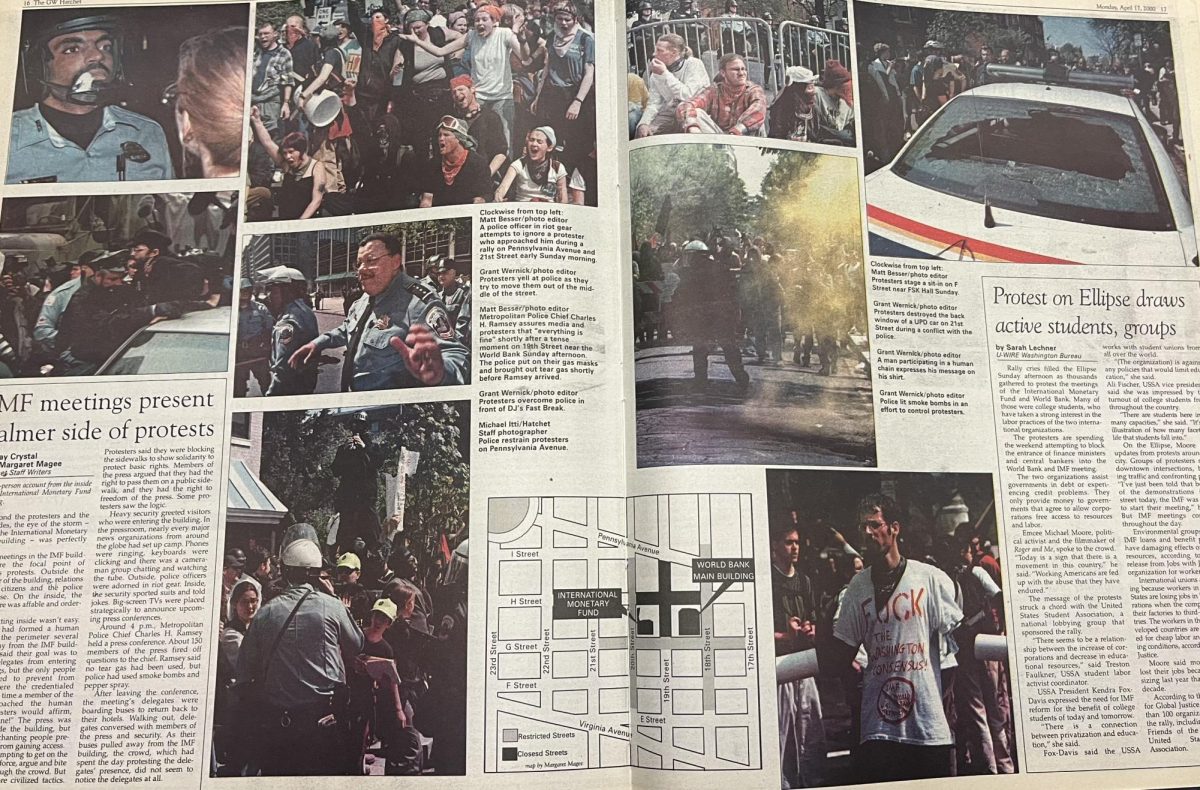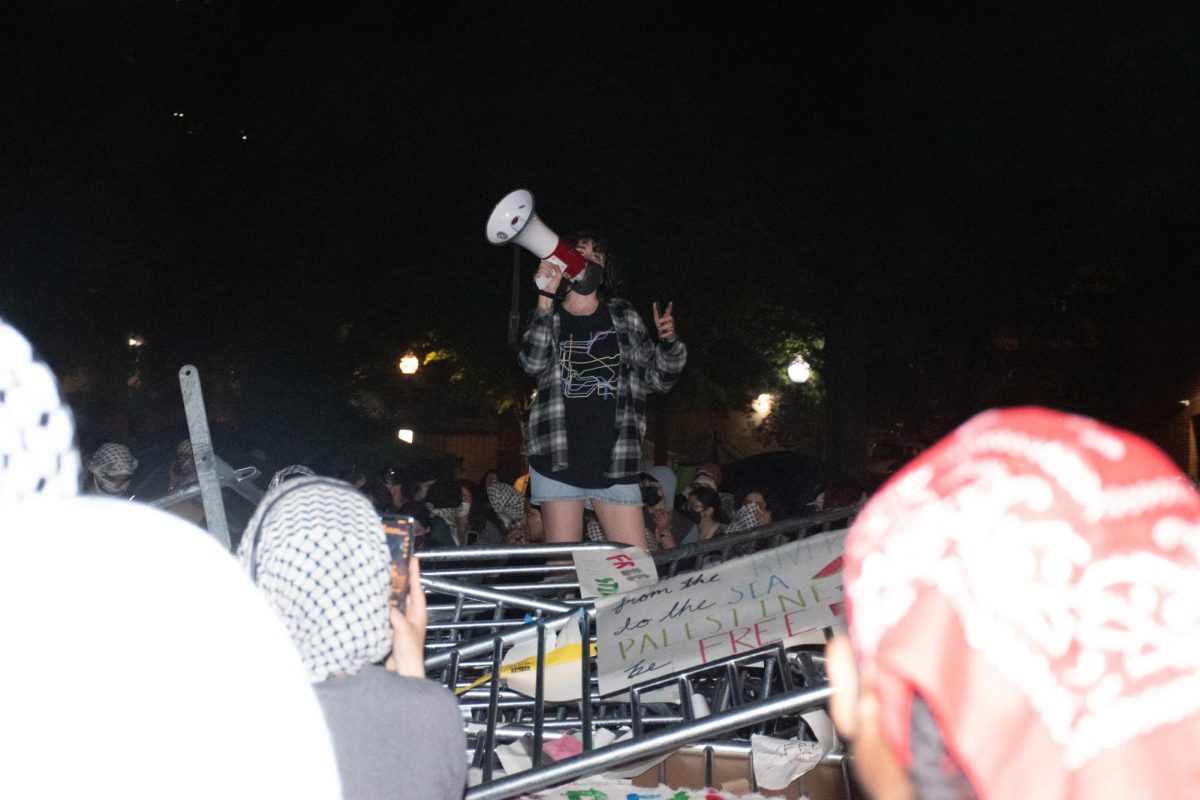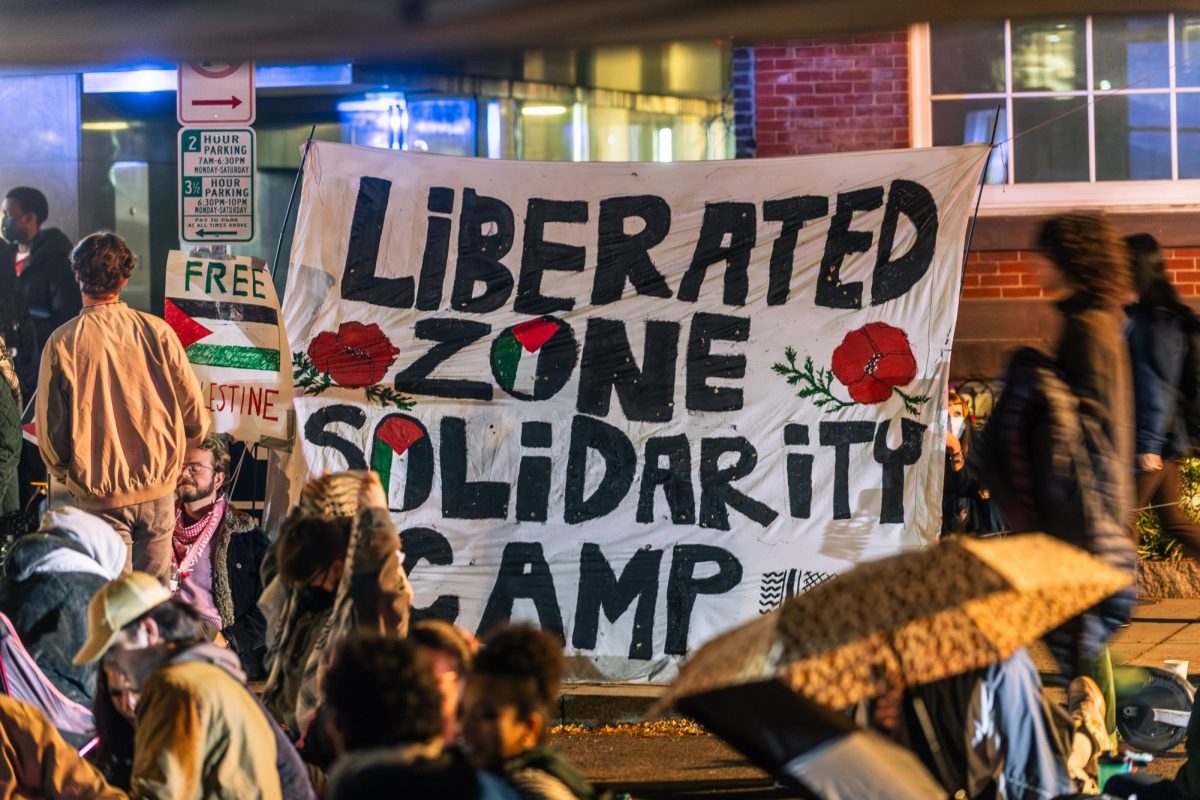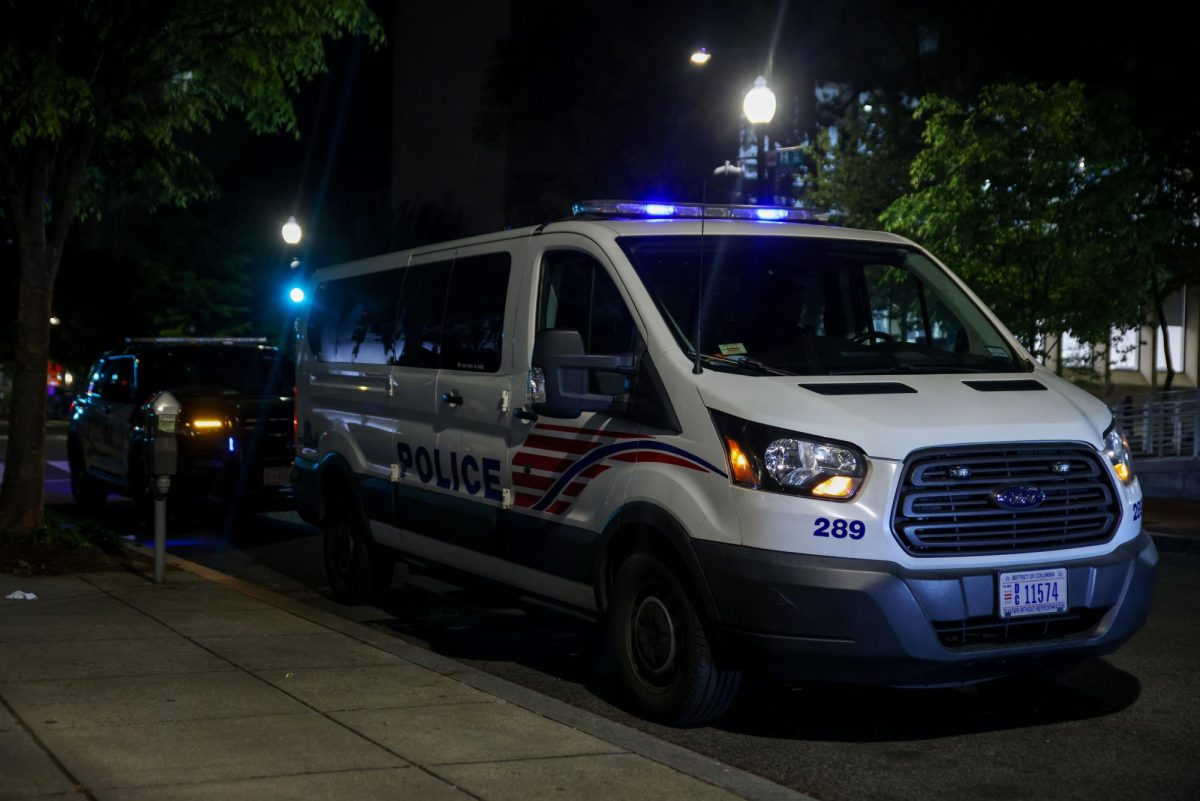Updated: May 12, 2021 at 3:33 p.m.
Muslim Student Association leaders organized online discussions and distributed meals to students for Ramadan this year.
The MSA coordinated and created new events and initiatives like sending out free Ramadan care packages and distributing free Iftar meals to plan for an entirely virtual month of celebrations during April and May. MSA leaders said they hope this year’s programming helps normalize respectful conversations between Muslims and non-Muslims about the monthlong festival.
The MSA hosted events for Ramadan like a kickoff ceremony and discussion sessions via Zoom to help members of the Muslim community connect with one another and replicate in-person traditions in some capacity.
Ramadan, a monthlong festival with prayer and fasting during the daylight hours, is considered one of the holiest Islamic months and is intended to be a time for Muslims to give to charity and strengthen their relationship with God.
Aleena Fayaz, a freshman representative on the MSA, said discussion sections led by members for this year’s virtual celebration intend to help normalize respectful questions for non-Muslims to ask about Ramadan to those who observe the holiday. She said answering these questions through discussion sessions and educating non-Muslims helps eradicate ignorance around Ramadan and Islamophobia.
“You should be able to ask if you want to ask me, ‘Hey can you eat this? What time do you break your fast? Do you have to fast? What are the exemptions and stuff?’ I want to be very open to those questions and then make you not feel bad about answering me,” Fayaz said. “I don’t want there to be this fear of asking because that’s how we kind of eradicate all this ignorance around Ramadan and Islamophobia as well.”
Fayaz said she is celebrating Ramadan from her home in Texas and has been attending a series of discussion sessions hosted by the MSA for Muslims and and non-Muslims to discuss “facts versus fiction” about Ramadan. She said Ramadan looks different for her than during pre-pandemic years because she can’t meet up with groups of friends who observe Ramadan to break fast together anymore.
Fayaz said she and another member took over the MSA’s Instagram story for a series sharing a day in their life of balancing fasting with studying.
She said the Multicultural Student Services Center created a holiday provision this year that allows students to request an exemption from class when they are fasting and participating in Ramadan. She said the exemption is reassuring to know that students who celebrate the month can take time off from classes to focus on fasting and prayer if needed.
“People take for granted how difficult it is to be studying and performing without food or water consistently,” she said. “And I think that’s the whole point of Ramadan – is to experience what that’s like for people that are less fortunate than us. But it is a nice feeling to know that you have that to fall back on if you need it.”
Mehrun Huda, a junior and Ramadan coordinator for the MSA, said she focused on providing free Iftar meals – the evening meals that Muslims end their daily Ramadan fast with at sunset – to students observing the month on campus. She said the meals were provided to students outside the Marvin Center on Saturday and Sunday nights during the entire monthlong celebration, marking the meal service’s first year in action.
“And so what we decided is we’re not going to do every single day, because when it comes to that people don’t want to eat the same meal every single day,” she said.
Huda said the group reached out to Flavors of India in the fall, and the owner now provides food like rice and chicken dishes on Saturdays and Sundays at a discounted price.
She said she sends out a weekly email to let students know where and when to pick up their meals, and a MSA volunteer distributes them outside the Marvin Center. She said contacting students has been difficult because most events are virtual and students are “tuned out” and busy with finals.
“The biggest challenge, I guess, is reaching out to people honestly,” she said. “For the Iftar meals, some people just would not show up, and it’d be really frustrating because we have volunteers.”
Simra Ahmed, one of the five event directors who create ideas for events to host during Ramadan for the MSA, said as a part of the Ramadan kickoff event this year, the group coordinated a Zoom meeting with MSA organizations at Georgetown, Howard and American universities to unify Muslim students from different institutions around the DMV area.
She said the event included a speaker and breakout sessions mixing students so they could get to know one another through games and activities. She said the MSA would like to continue the event when students can meet in person in the future.
“We had this really great event – we had never actually done something like that between the D.C. DMV universities,” she said. “That was a really great event to meet other Muslims at different universities and based on a lot of the students were really happy with meeting people that they haven’t met before. So this is something that will most definitely continue when we get back on campus.”
Ahmed said the MSA still had leftover funds that they raised to spend on Ramadan this semester because members didn’t need to purchase resources for in-person events. The group decided to start a Ramadan care package program with the extra money in February, sending students snacks and candy.
Students said they were excited to receive the care packages as a new addition to the programming that normally takes place with the MSA during Ramadan, Ahmed added.
“Because of the really great feedback, this might be something we continue to do because it’s just nice to have something just to celebrate the beginning of this month,” she said.
This post was updated to clarify the following:
This story was updated to clarify the location where the MSA distributed Iftar meals.


